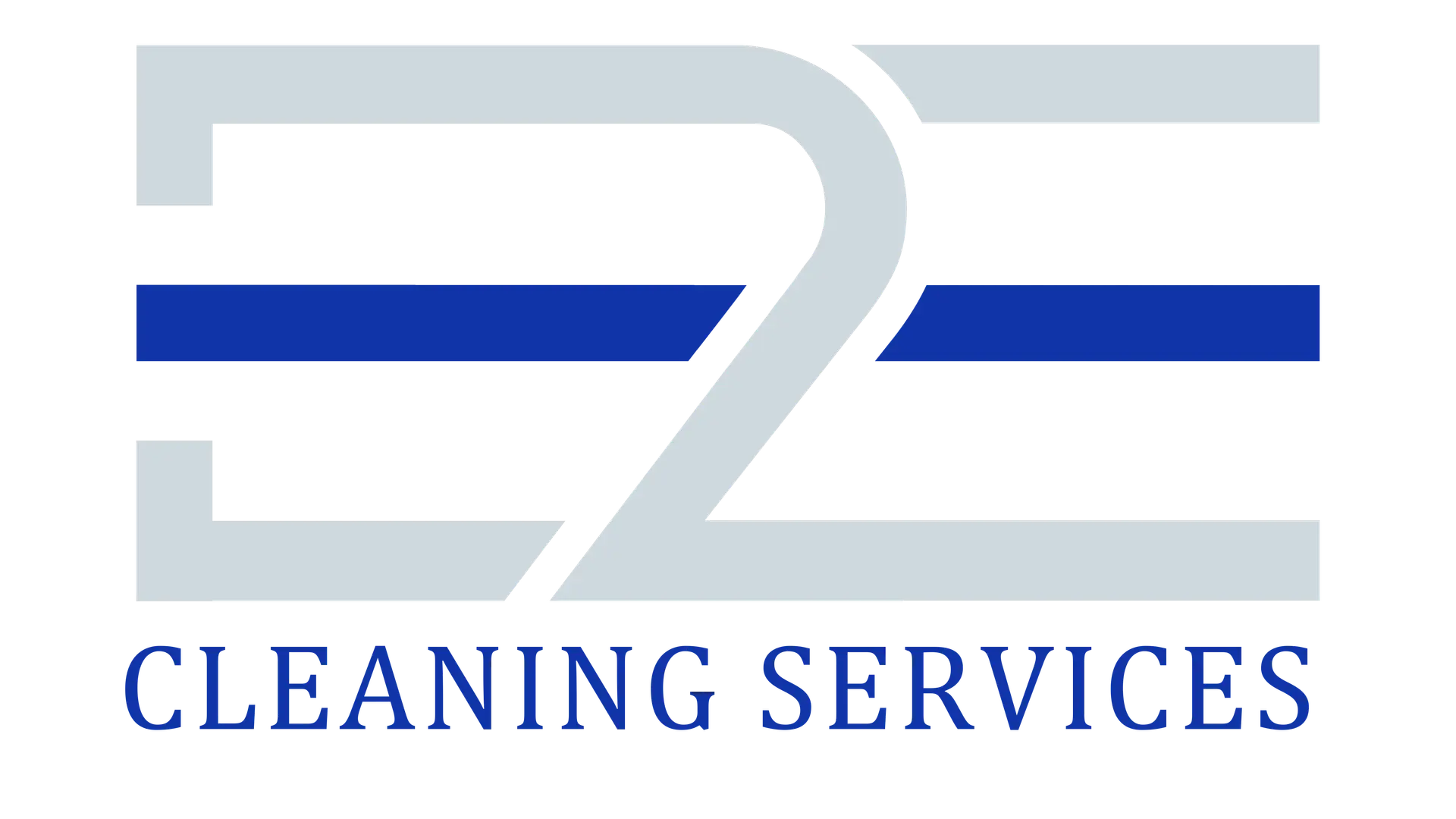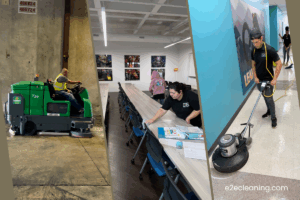The wedding venue cleaning industry is on the rise as more and more couples come to understand the importance of immaculate environments for their special day.
In this article, we discuss the whole wedding venue cleaning approach, from pre-event deep cleaning to day of services and post event restoration. Industry professionals will find insights into specialized techniques, emerging trends and client expectations that will help them position their services in this lucrative market segment.
The Rise of Professional Wedding Cleaning
In recent years, cleanliness has become a non negotiable when it comes to picking or managing a wedding venue. As the average U.S. wedding costs around $30,000, couples are now more and more setting aside budget for specialized cleaning services to protect their significant investment.
This growth follows broader trends in the commercial cleaning industry. The wedding dress cleaning market is expected to grow from $1.2 billion in 2024 to $1.9 billion by 2033 and the value couples place on presentation is high. The U.S. commercial cleaning sector is expected to grow by $37.8 billion between 2025-2029 with specialized event cleaning being a large growth segment.
Several factors are behind this trend:
- Cleanliness matters: With wedding photography and videography becoming more and more advanced, the cleanliness of your venue will directly affect the quality of your images and the preservation of your memories.
- Health consciousness: The pandemic has heightened people’s health consciousness and awareness of sanitization standards at public gatherings.
- Venue competition: Properties are partnering with professional cleaning services to provide a superior environment in a competitive wedding market.
- Sustainability focus: Modern couples prioritize sustainability as they want their celebrations to be environmentally responsible. This includes using green cleaning protocols that align with their values.
This is a big opportunity for commercial cleaning companies to create specific service offerings to meet the wedding industry’s specific needs. Successful providers are packaging up the entire wedding timeline, from preparation to restoration.
Pre-Wedding Deep Cleaning: Setting the Stage
Deep cleaning before a wedding is the first step to a successful event and usually happens 48 – 72 hours before guests arrive. As such, this comprehensive service requires a level of specialized knowledge in both cleaning protocols and wedding specific considerations.
Professional pre-wedding cleaning program should include:
Surface Restoration: Wedding venues have a variety of materials that need special treatment.
Crystallization techniques may be needed to refinish marble floors to create light reflective surfaces good for photography. Water based solutions can damage historic wooden fixtures, so gentle oil based cleaning agents are preferred.
Preparation of these spaces requires technical knowledge of surface chemistry.
Environmental Systems: HVAC inspection and cleaning should occur approximately one week prior to the event with a particular attention to air filtration efficiency. Airborne particulates that could affect guest comfort or photography quality are reduced by MERV-13 filters which are industry standards for event spaces.
Critical Areas: Venue managers data suggests that some areas need special focus:
- Properly maintained restrooms receive 80% of guest complaints
- Wax buildup and slip resistant properties need to be restored on dance floors.
- NSF/ANSI 3-A – Food service areas must meet commercial kitchen sanitation standards.
- Dust that becomes visible in professional photography often hides in window treatments and high fixtures.
Timeline Coordination: Pre-wedding cleaning needs to be scheduled precisely with other vendors.
Professional cleaners should have a preparation timeline that includes:
- Furniture delivery and placement
- Floral installation
- Setup of technical equipment
- Final inspections
Venue management should be engaged with a formal pre-event inspection protocol by cleaning professionals, documenting conditions as they are and setting expectations for restoration. This documentation protects both parties and ensures that we are all on the same page with regards to the scope of post-event cleaning requirements.
Ensure your special day starts with spotless elegance. Book our pre-event deep cleaning for peace of mind
Day-of Wedding Cleaning: The Day Porter Advantage
Trained day porters are a growing segment in wedding venue cleaning, providing discreet, real-time maintenance throughout events. These specialized attendants ensure spaces remain clean without disrupting the celebration, striking a careful balance between efficiency and invisibility.
The day porter approach is fundamentally different to traditional janitorial services. Event attire for porters is event appropriate (typically black formal wear), they carry minimal visible equipment and they develop timing protocols that allow them to address issues during natural breaks in the celebration sequence.
Standard day porter responsibilities include things such as:
Restroom Maintenance: Full supply replenishment, fixture cleaning and floor spot treatment as needed on 30-60 minute intervals.
Liquid Accidents: Spill response protocols appropriate for different surfaces (e.g., blot only approaches for delicate fabrics, enzyme cleaners for protein based spills such as wine or food).
Waste Management: Discreet emptying of receptacles before they reach capacity, especially in food service areas and bar stations where accumulation occurs very quickly.
High-Traffic Area Monitoring: Continual assessment of entry points, dance floors and transition spaces that collect debris and/or where moisture may create safety hazards.
Technical equipment for day porters is portable and discreet.
- Concealed in utility closets are collapsible microfiber mop systems.
- Low decibel, battery powered spot extractors for carpet emergencies.
Communication systems for coordination with event managers (usually earpieces) that are inconspicuous. - EPA List-N approved disinfectant wipes pre-moistened for quick surface treatment
Facility managers should establish clear pathways for day porters to access utility areas without crossing main event spaces. In larger venues, quick-response supplies should be stored in easily accessible locations, so porters don’t have to return to central supply areas when responding to immediate needs.
Wedding day porters training does not stop at cleaning techniques but also includes event etiquette, photography awareness (being aware of the background at key moments) and crisis management procedures for larger incidents that may affect the event timeline.
Post-Event Cleanup: Restoring Venues to Perfection
The most intensive phase of wedding venue maintenance is post-event cleaning which happens in a compressed time frame to get ready for the next event. Usually, this restoration process starts right after a guest leaves and follows an efficient and thorough process.
The following are a part of a comprehensive post-event cleaning protocol:
Waste Segregation and Removal: Separation of recyclables, compostables and landfill items according to local regulations, including floral waste, food remnants and decor material. More and more venues are tracking diversion rates as part of their sustainability reporting.
Surface Restoration: All guest contact areas are completely sanitized with EPA registered disinfectants with proper dwell times (5 – 10 minutes depending on product). Quaternary ammonium or hydrogen peroxide based products are used on high touch surfaces.
Floor Recovery: All flooring systems are thoroughly cleaned, but with a special emphasis on dance floor areas where scuffing, spills and heavy traffic present special challenges. Neutral pH cleaners followed by appropriate maintainers are used to restore finish without buildup on wood floors.
Fixture and Furnishing Reset: All tables, chairs and movable fixtures are cleaned and sanitized before proper storage. Upholstery needs to be checked and spot cleaned using the proper extractors and fabric safe solutions.
Outdoor Space Restoration: All decor elements are collected, litter is removed and walkways, patios and gathering areas are surface cleaned. Chemical runoff into landscaping or water features can be prevented by eco-friendly practices.
The timeline considerations for post-event cleaning are critical:
- Small venues (under 5,000 sq ft): 3-5 hours with a 3-4 person team
- Medium venues (5,000-15,000 sq ft): 5-8 hours with a 5-7 person team
- Large venues (over 15,000 sq ft): 8-12+ hours with teams of 8+ technicians
During this phase coordination with other vendors is essential. Teams that clean must have clear handoffs with:
- Food service equipment removal and kitchen restoration to catering staff
- Timeline of installation breakdown for decor companies
- Furniture, tableware and equipment rental companies picking up
- Damage assessments being carried out by venue staff
Post-event cleaning today is increasingly involving documentation procedures. Team leads now take before-and-after photos of each space and complete digital checklists. This helps ensure accountability for both team leads and venue managers, while also providing quality assurance for future couples.
The Photography Factor: Clean Backgrounds, Beautiful Memories
One of the most compelling value propositions for professional wedding venue cleaning is the relationship between cleanliness and photography. Now, photography considerations directly influence cleaning protocols, in particular, those aspects that will be prominently visible in the images.
These critical cleaning priorities are identified by professional photographers as:
Reflective Surface Management: Windows, mirrors and metallic surfaces should be streak free cleaned with microfiber systems and the appropriate solutions (alcohol or vinegar based) to avoid distracting reflections in photographs.
Background Cleanliness: Ceremony backdrops, reception wall surfaces and architectural features should be dusted and spot treated to remove distractions in composed shots. These applications have become standard to electrostatic systems.
Floor Appearance: Dancing and first dance photos often highlight the flooring, making proper floor maintenance essential. Just before events, wood floors are usually buffed instead of wet cleaned to enhance their shine while avoiding slippery surfaces.
Outdoor Element Preparation: Debris removal is required for all natural areas, especially ceremony sites when ground conditions show up in wide angle shots. Standard protocol for these spaces is leaf blowers with variable speed controls and rake finishing.
Photography specific considerations are now included in technical cleaning approaches:
- Schedules were cleaned in alignment with photography timelines, final touches completed before “first look” or venue photography sessions.
- The chemical selection that reduces the residual fragrance which may interfere with guest comfort during close up photography
- Lighting consideration during cleaning to see if there are issues that would be visible under professional photography equipment.
Pre-event walkthroughs are now coordinated directly with photography teams where facility managers identify specific areas that need special attention. By collaborating, cleaning priorities are in sync with planned photography locations and shooting schedules.
Proper cleaning has a huge effect on the post production photography work. Industry research indicates that professional pre-event cleaning can save you 15-20% of photo editing time, especially for removing distracting elements that could otherwise be removed through proper cleaning.
Guest Experience and Health Considerations
The wedding venue cleaning industry has undergone dramatic change since the pandemic, with guest health and safety awareness now permanently integrated into cleaning protocols. Today’s standards call for both visible cleanliness and invisible sanitization that actually provides protection.
There are comprehensive guest experience considerations:
Air Quality Management: All HVAC systems should be cleaned and filters should be upgraded to MERV-13 or better (minimum). Carbon dioxide monitoring is now standard practice in premium venues in order to maintain optimal air quality throughout events.
Touchpoint Sanitization: The regular disinfection of high contact surfaces using products with proper kill claims for common pathogens. Electrostatic application provides complete coverage for decorative elements and textured walls.
Restroom Excellence: Beyond simple cleanliness, today’s protocols include touchless fixtures, sufficient ventilation (minimum 10 air changes per hour) and visible cleaning logs to give guests peace of mind.
Allergen Management: Removal of all dust using HEPA filtered equipment, cleaning of upholstered surfaces and minimal use of fragranced products that could cause guest sensitivities.
There are specific technical approaches to health focused cleaning:
- Critical surfaces are ATP tested to verify cleaning efficacy with benchmarks of less than 30 RLU for food contact surfaces and less than 50 RLU for high touch non food surfaces.
- Selection of disinfectant based on appropriate kill claims and dwell times, both for efficacy and guest safety
- Microfiber systems that are laundered with appropriate protocols (160°F minimum washing temperature and proper detergents)
Product selection is very important to strike a balance between health considerations and aesthetic experience. Hydrogen peroxide based products have largely replaced harsh disinfectants with strong odors with products that are both efficacious and sensory acceptable.
Communication of cleaning protocols has become an important part of venue marketing for facility managers. Documentation of cleaning standards in a transparent way such as product selection criteria and frequency schedules, is reassuring to couples and guests alike.
Choosing the Right Cleaning Service
Wedding environments have unique demands and facility managers and venue operators need to know what they are looking for in a cleaning partner. Unlike general commercial cleaning, wedding venue specialists must be technically proficient and event savvy.
The criteria for evaluating wedding venue cleaning services is as follows:
Specialized Experience: Providers should have special experience in wedding venue cleaning and not merely general commercial cleaning experience.
Critical indicators include case studies, testimonials from similar venues and understanding of event specific challenges.
Staffing Approach: Dedicated event specialists should input to the team with training in technical cleaning and event etiquette. They have to be able to pass a background check, meet appearance standards and have good communication skills.
Equipment and Chemistry: Providers should use modern systems suited to venue surfaces, including low moisture approaches that permit quick turnaround between events. Safety, efficacy and minimal environmental impact should be the basis of chemistry selection.
Protocol Documentation: Each venue’s unique requirements are addressed through comprehensive, tailored cleaning checklists. These should include area-specific procedures, quality verification methods, and contingency plans.
Scheduling Flexibility: Wedding venues need partners that can handle flexible scheduling such as being able to move between events at late night/early morning times and seasonal volume fluctuations.
Technical questions facility managers should ask potential partners.
- What kill claims do your products support and what disinfection protocols do you follow?
- How do we approach different flooring systems in our venue (wood, carpet, stone, etc.)?
- How are cleaning efficacy verified by quality assurance methods?
- What is your emergency response for events?
- How do you practice sustainability in product selection and waste management?
The considerations should be contractual:
- Defining clear scope delineation between venue staff, cleaning team and other vendors.
- Defined response times in emergency response provisions.
- Specific performance metrics and quality standards.
- Requirements of staff appearance and conduct
- Provisions for scaling during peak season and for special circumstances.
Larger venue operators operating multiple properties can develop master service agreements with specialized wedding cleaning providers to create consistency and economies of scale across locations.
Conclusion
The Future of Wedding Venue Cleaning
The wedding venue cleaning sector is also evolving with many emerging trends that will shape future service delivery.
Eco-friendly practices are no longer limited to chemical selection, but are now an integral part of the overall approach: water conservation, waste diversion and carbon footprint reduction.
More and more venues are asking for documented sustainability metrics as part of service reporting.
Digital monitoring systems, QR-code accessible cleaning verification and real time communication platforms are making operations more efficient and transparent for both venue managers and clients.
Training programs that are specific to the event venue cleaning industry are being developed with the goal of creating a framework for credentialing beyond that offered by general commercial cleaning certifications.
Service providers are creating tiered packages to allow venues and couples to choose the right service levels based on the complexity of the event, the budget and specific needs.
The wedding venue segment is a specialized opportunity for facility managers and cleaning service providers, who need to allocate the right resources and have the right expertise to serve it. In order to succeed in this market, one must understand the technical cleaning requirements as well as the special emotional context of a wedding celebration.
Facilities that make cleanliness a hygiene issue will be the ones that thrive; those that understand that cleanliness is not only a hygiene factor but an integral part of the wedding experience that directly contributes to the newlyweds’ memories and their guests that will take away with them long after the celebration is over.






